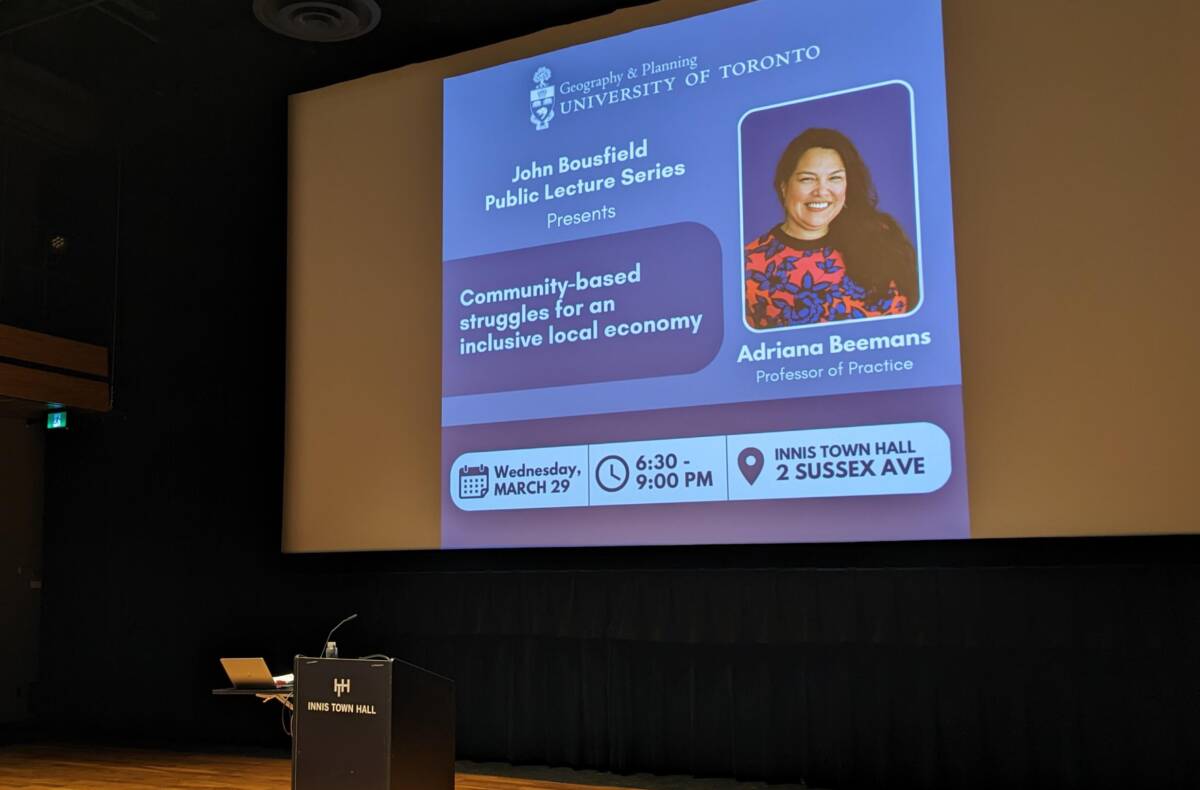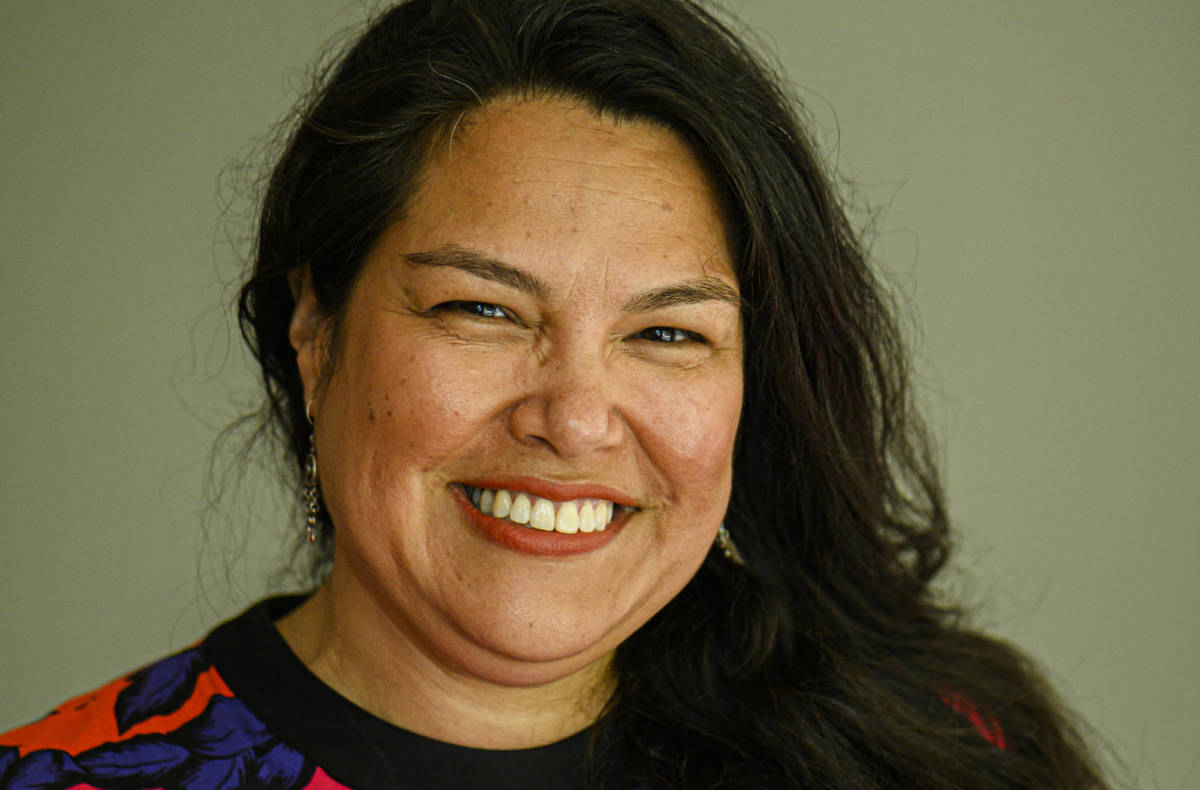By Adriana Beemans, Inclusive Local Economies Program Director, Metcalf Foundation
At the beginning of this year, I was awarded a Bousfield Distinguished Visitorship in Planning, making me a professor of practice in the University of Toronto’s Department of Geography & Planning where I had the opportunity to engage with students, lecture in classes, and research inclusive local economies.
It was a timely moment to pause and reflect. We had recently completed an extensive engagement with Metcalf grantees as part of our Inclusive Local Economies program’s 10-year review, and I had also hit my 10-year work anniversary at Metcalf along with 20 years as a community development practitioner in Toronto. This visitorship enabled me to reflect on the patterns and dynamics of social change strategies that I have been part of, and dive into academic theory and research to deepen my understanding of community wealth building, neighbourhood development, and the social and solidarity economy.
As part of my visitorship, I gave a public lecture titled “Community-based struggles for an inclusive local economy,” in which I shared four stories of social change. By applying the contingency framework for measuring social performance developed by Alnoor Ebrahim and V. Kasturi Rangan, I was able to illuminate the different strategic approaches that community leaders have taken to intervene in the economy to center equity and social justice and have impact at a significant scale. The slides that complement the talk can be downloaded here.
The community-based sector offers so much wisdom and experience in challenging the economic forces and social structures that reinforce poverty and inequality: fighting for decent work for low-wage workers, creating access to good jobs for marginalized communities, building community wealth in changing neighbourhoods, and redistributing and repurposing assets and profit so that low-income people benefit.
However, it is not always easy to study and learn from it. The work is often grassroots and hyperlocal — it’s hard to collect evidence to prove progress and difficult to translate micro-level insights or see how daily activities contribute to the broader collective impact. And often, the evidence and learnings of community work is hidden, visible only to the funder, or held in the memories of the community stakeholders of the time.
So, it was crucial for me, as someone who has been an active, engaged grantmaker for almost 15 years, to be able to reflect, research, and share some of the insights and learning I have gained from working with these incredible community leaders and organizations. The core principles of the social and solidarity economy — redistributive justice, economic democracy, and relational autonomy — consistently show up in community-led social change work, and it’s clear these principles are embedded in many of the missions and models of organizations that have made a significant impact in Toronto.
As our city faces upcoming choices and challenges about how our economy should function, the role, voice and strategy of community as a partner in social change is more important than ever. This opportunity has deepened my analysis and ability to both support and nurture these efforts. Now, back at Metcalf, I look forward to continuing to explore these themes and learnings through the work of our Inclusive Local Economies program.



